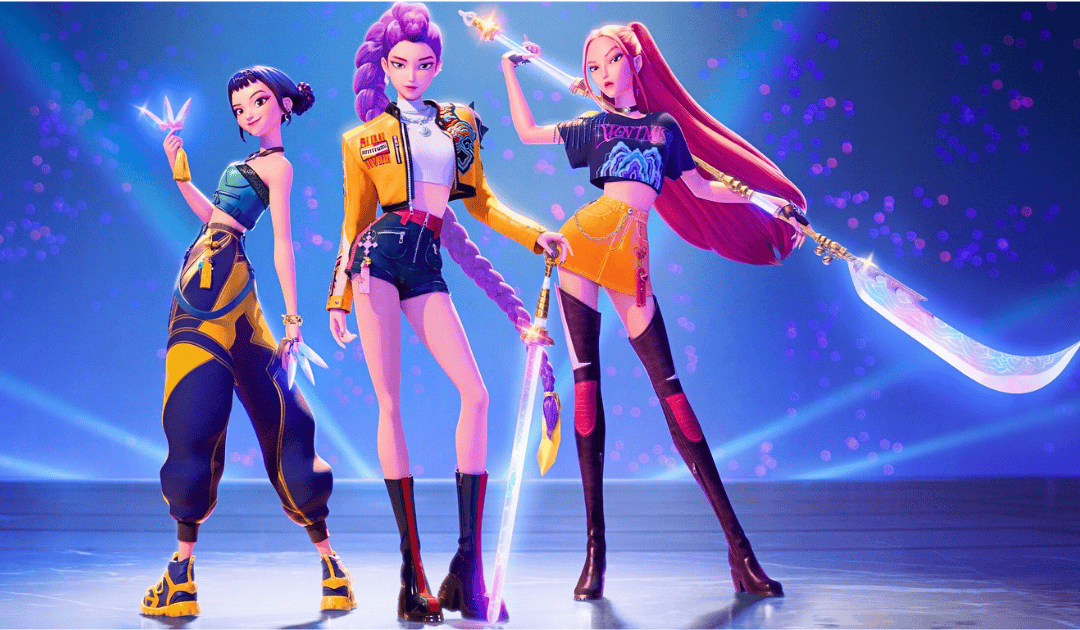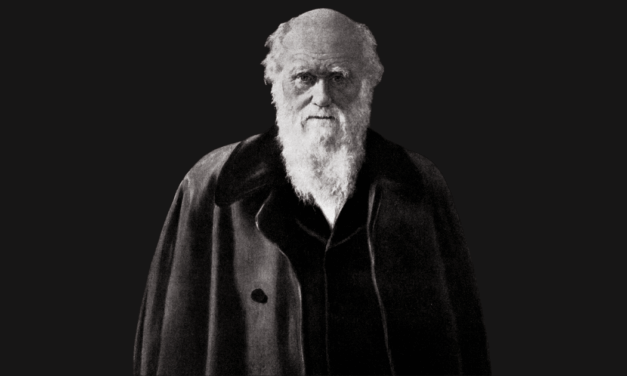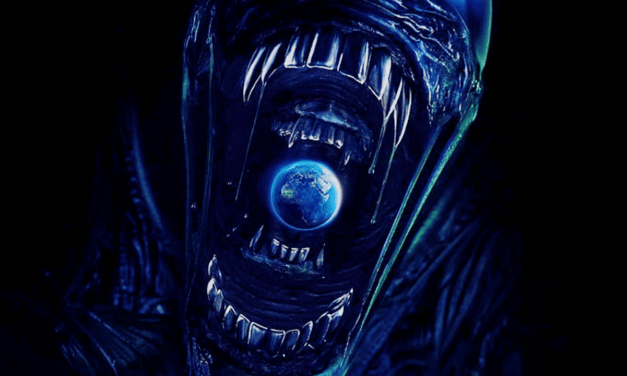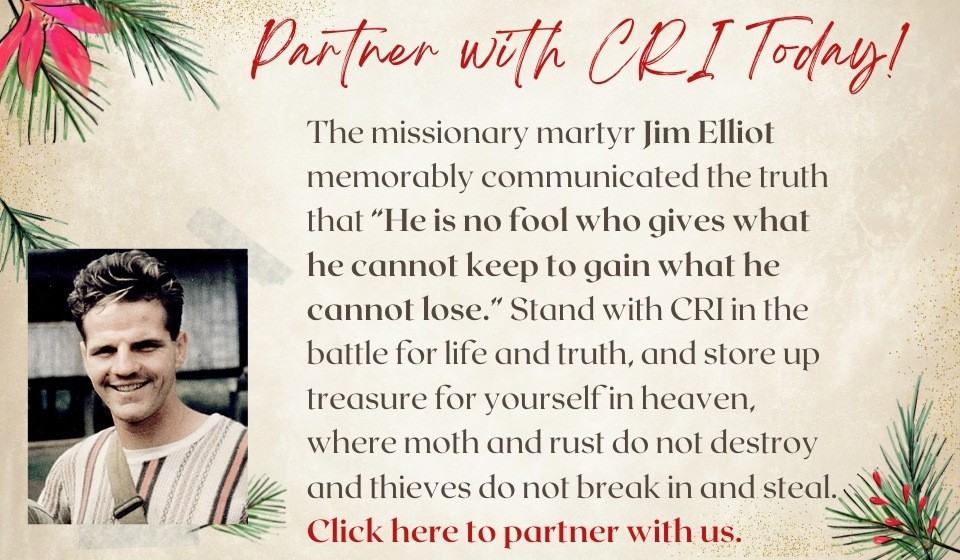Listen to this article (11:22 min)
This article was published exclusively online in the Christian Research Journal, Volume 48, number 04 (2025).
When you support the Journal, you join the team and help provide the resources at equip.org that minister to people worldwide. These resources include our ever-growing database of more than 2,500 articles and Bible Answers, as well as our free Postmodern Realities podcast.
Another way you can support our online articles is by leaving us a tip. A tip is just a small amount, like $3, $5, or $10, which is the cost of a latte, lunch out, or coffee drink. To leave a tip, click here.
[Editor’s Note: This review contains spoilers for K-Pop Demon Hunters .]
K-Pop Demon Hunters
Directed by Maggie Kang and Chris Appelhans
Sony Pictures Animation
Netflix, 2025
Rated PG
K-Pop Demon Hunters (2025), a Netflix animated movie rated PG, exploded in popularity with over 541 million hours viewed this year already.1 In fact, K-Pop Demon Hunters has topped the charts as Netflix’s most-watched film of all time.2 The crown jewel of this cultural sensation is the film’s soundtrack. Garnering billions of streams,3 the music keeps the audience coming back for more. Judging by its bright color palette — full of pink and purple tones — and its poppy girl-power music, you might assume the main audience for this film is little girls. However, the most surprising aspect of this phenomenon is the diversity in the film’s audience. Through many viral social media videos, I have observed men, women, girls, and boys of all ages exclaiming their fascination with this movie.
Not only are the fans diverse, but so are the opinions of Christians when it comes to K-Pop Demon Hunters. From those who fear allowing demonic-themed media into their home to those who insist the movie actually promotes a Christian message, the spectrum of views can be quite confusing. Even well-known Christian influencers have been outspoken with vastly different assessments of the movie’s messaging and whether Christians ought to partake in the entertainment.4
Despite this range of reactions, K-Pop Demon Hunters is a well-made creative work of art. The filmmakers seemed to have thought through every detail. The story deals with mature themes yet is packed with fun, lighthearted humor. However, in my opinion, the messaging could cause spiritual confusion for the passive consumer or young minds. It is wise to examine the ideas this film promotes with a critical mind and from a biblical worldview.
A Film About Good vs. Evil? HUNTR/X, a three-member K-Pop (Korean-Pop) girlband, is tasked with protecting the world from demons by creating unity through music that “ignites the soul.”5 When the girls perform, their fans’ souls shine through their body and power a magical protective barrier called the Honmoon (translated from Korean literally as “soul gate”). This barrier separates the world of humans from the demon realm. Gwi-Ma, the satanic figure of the underworld, feeds on the souls of humans for his power. He sends his demons to penetrate the Honmoon and suck out human souls. If the Honmoon becomes strong enough to turn gold, however, it will become permanently impenetrable, dooming Gwi-Ma and the demon world to be sealed away from humans forever. If the plot ended here, K-Pop Demon Hunters would appear to be a classic good-versus-evil motif, but as they say, “the plot thickens.”
The line between good and evil begins to blur when it’s discovered that protagonist Rumi, lead singer of HUNTR/X, is secretly part demon. All demons in the movie have marks that are called patterns. Rumi has been covering up her patterns her entire life, as instructed by her aunt who raised her. There is only one problem: the patterns are spreading. Eventually, the patterns reach her neck, which weakens her voice and, consequently, the Honmoon. This problem is exacerbated when a demon boyband called the Saja Boys begin stealing the girls’ fans. Further obscuring moral boundaries, Rumi begins falling in love with the Saja Boys’ lead demon singer, Jinu. The audience learns that Jinu was once human. He is now owned and controlled by Gwi-Ma through exploitation of his shame due to his selfish betrayal of his family when he was alive. Rumi becomes conflicted and questions the indoctrination she received from her aunt at an early age. In a flashback of Rumi as a child, she asks her aunt if hunters are to kill all demons. The aunt answers “yes,” and the viewer is meant to sense the aunt’s bigotry. It turns out that the real battle is not with external evil but with internal feelings of shame. Rumi and the girls must each accept and expose their imperfections. Only then are they able to make the Honmoon strong enough to withstand the demon realm.
What’s True in the Film? K-Pop Demon Hunters surprisingly depicts some truths affirmed by a biblical worldview. One of the most obvious truths is that there is an unseen spiritual realm around us at all times. In a chilling scene ending the movie’s introduction, hidden demons are crowded against the edge of the Honmoon — so close to the unaware humans that they are nearly touching them. They lie in wait looking for their opportunity to steal souls. This reflects 1 Peter 5:8, where “the devil is prowling around like a roaring lion, looking for anyone he can devour” (CSB).
Beyond that, some elements of the movie’s demon portrayal are also accurate, though not all. In reality, demons might use different tactics to accomplish their deception. At times they might employ intimidation or fear (Matthrew 8:28–34), and at others they may present as beautiful, like an “angel of light” (2 Corinthians 11:14). This is slightly paralleled in K-Pop Demon Hunters where the demons are largely imaginative depictions based on ancient Korean mythology.6 In the movie, there are various types, as some demons are terrifying, others are bumbling idiots, and still others are actually attractive. But the idea that demons can take on physical form and become human or partially human, that they can animate the dead, or that humans can become demons is without biblical support.
Notably, the film vividly portrays the dark reality of a demonic stronghold. One only needs to view the scene where the Saja Boys perform “Your Idol” to see what I mean. This haunting song is reminiscent of C. S. Lewis’s Screwtape Letters (Geoffrey Bles, 1942), exposing the tactics and endgame of the enemy. The song opens with choir voices that sound like an organ in a Cathedral. The demon band of boys eerily elevate into the air, wearing black robes and top hats. Jinu’s distorted demonic voice entices the transfixed audience to worship him as their personal idol. In exchange for that worship is the promise to be a place of sanctuary for them and even to love their sins. The demons are no longer hiding their intentions nor their true identity because they have successfully captivated the hearts and minds of the people. This is a dark song, but it is dark in such a way that it exposes real darkness. “Your Idol” is one of the most popular songs on the soundtrack. It has an excellent place in the film, but caution is warranted when it comes to playing the song on repeat out of the film’s context.
In the movie, the girls battle demonic monsters with their magical weapons and their magical voices. Yet it is soon revealed that Rumi’s battle is primarily (and secretly) with her inner demon. Toward the film’s conclusion, it is learned that Rumi’s counterparts, Zoey and Mira, were also having their own inner battle all along. Mira is tormented by the lie that she doesn’t deserve a family, implying she doesn’t deserve to be loved and accepted. Zoey is berated by the phrase, “You’re too much, and not enough,” and a feeling that she doesn’t belong. Like Satan, Gwi-Ma’s main tool of oppression is exploiting the shame and insecurity of every creature he manipulates and controls. It is in the dark that shame builds and festers. In this festering grows the temptation to hide, lie, and even fill emotional voids with sins. Confession is a powerful tool to combat this problem of shame, and bringing it to the light can drastically weaken the enemy’s foothold.
Are Lies from Culture Being Promoted? As discussed, shame in the hands of the enemy is a powerful weapon. Gwi-Ma is finally weakened and defeated when shame no longer had a hold on the HUNTR/X girls. Overcoming their shame required that they accept their “patterns” and insecurities and become their true, authentic selves. Conflicting with a biblical worldview in which humanity’s main problem is sin against God, K-Pop Demon Hunters assumes humanity’s main problem is shame — the painful subjective feeling that oneself is fundamentally flawed or inferior.7 In the K-Pop Demon Hunters world, salvation occurs when each person accepts and loves every part of themselves: the good, the bad, and the ugly. There is a conflation of shame that comes from immutable characteristics, unwanted personality quirks, and sin. Jinu’s shame that came from the sin of his act of betrayal requires the same solution as Rumi’s shame that came from a condition she was born with. This solution is essentially acceptance; one must accept past sins or the darker parts of the self. In reality, different sources of shame may need to be identified and addressed with different solutions. Shame that results from sin needs repentance, not acceptance.
In an emotional pre-climactic scene, broken and nearly a full demon, Rumi confronts her aunt. She cries out, “Why couldn’t you love me?” Her Aunt, unable to meet Rumi’s eyes, responds, “I do!” Rumi’s voice turns demonic as she shouts, “All of me!” and demonic energy erupts around her. In today’s narcissistic culture, it is deemed righteous to demand full affirmation, love, and acceptance. When the demand is not met, people are advised to leave and go where it will be. Co-director/co-writer of K-Pop Demon Hunters, Chris Appelhans, describes his emotional connection to the movie by relating the story to friends of his who were “in the closet.” Coming from a small, religious town, Appelhans laments that the family of his friends never fully accepted or loved them. He said, “There was this permanent heartbreak that they could not be loved for all of themselves and yet, they went out in the world and they found a new group of people who could. And they built a new family and they built a new way to live.”8 Appelhans’ first mistake is to consider his friends’ sexual identity as an immutable characteristic of who they are. His second mistake is to redefine the word love to mean full affirmation and acceptance. As the final authority on love’s definition, Scripture reveals that “Love does not delight in evil but rejoices with the truth” (1 Corinthians 13:6 NIV). In other words, it is never loving to affirm sin.9
Rather than seeking redemption and righteousness, the world prefers to find power in their imperfect mess. In the scene with Rumi confronting her aunt, the aunt responds, “Our faults and fears must never be seen. It’s the only way to protect the Honmoon.” In other words, perfection is the only way to protect the world and defeat Gwi-Ma. Rumi finally realizes the impossible standard. The Honmoon could never be sealed because it only had imperfect souls to power it. A new Honmoon would need to be created, and this time the power would come from embracing their own mix of “darkness and harmony.” This message is directly at odds with Christianity, because perfection really is the only way to defeat sin and Satan. The only hope is through a perfect savior, Jesus Christ.10
Should Christians Watch This Movie? There’s no reason to expect a pop-culture fantasy-action film on Netflix to fully align with a biblical worldview. It is important to note that this movie sets out to showcase Korean culture, drawing heavily from Korean Shamanism and Korean mythology.11 Some of the images could be disturbing, especially for small children. There are legitimate reasons for Christians or their children to refrain from viewing this film, and yet it can be used as a helpful tool for worldview conversations and training in biblical discernment. Like many other secular movies that delve into spiritual matters, K-Pop Demon Hunters gets some things right. Yet it is crucial to recognize the dangerous distortions and lies it contains. —Alexa Cramer
Alexa Cramer is a Christian apologist, writer, and podcast contributor for Mama Bear Apologetics. She has a BA in Communications and Film.
NOTES
- “Top 10 Most Popular Movies [of All Time on Netflix],” Tudum by Netflix, accessed November 25, 2025, https://www.netflix.com/tudum/top10/most-popular; and Tim Lammers, “Netflix Smash ‘KPop Demon Hunters’ Returning to Theaters This Week,” Forbes, October 29, 2025, https://www.forbes.com/sites/timlammers/2025/10/29/netflix-smash-kpop-demon-hunters-returning-to-theaters-this-week/. Netflix’s “Most Popular” page is dynamically updated; the figure of over 541 million hours viewed is corroborated in Forbes’ reporting of Netflix’s internal data.
- Keisha Hatchett, “KPop Demon Hunters Reaches a Golden Milestone: Most Popular Netflix Film Ever,“ Tudum by Netflix, August 26, 2025, https://www.netflix.com/tudum/articles/kpop-demon-hunters-most-popular-netflix-film.
- See the stream counts on the soundtrack’s songs just on Spotify alone: “KPop Demon Hunters Cast,” Spotify, accessed November 20, 2025, https://open.spotify.com/artist/7mW7Tv7NvywKKXqafZo0Lc.
- For an example of a critical review, see this video of Christian conservative commentator Allie Beth Stuckey, “‘KPop Demon Hunters’: Paganism & LGBTQ Propaganda for Kids | Ep 1235,” August 27, 2025, YouTube, video 1:01:37, https://youtu.be/u3jdNRAuFQs?si=2scKdo7JR4GPv5hO. For an example of a favorable review, see this video of Christian apologist Michael Jones, InspiringPhilosophy, “KPop Demon Hunters is Actually CHRISTIAN!,” YouTube, video 7:29, https://youtu.be/nB0yhTpU7mU?si=lHLL-fRVts0mop5G.
- K-Pop Demon Hunters (2025), directed by Maggie Kang and Chris Appelhans, screenplay by Danya Jimenez, Hannah McMechan, Maggie Kang, and Chris Appelhans, Sony Pictures Animation, streaming on Netflix. This reference applies to all subsequent quotations from the film in this review.
- Michele Kirichanskaya, “Interview with Maggie Kang, Creator of KPop Demon Hunters,” Geeks Out, July 16, 2025, https://www.geeksout.org/2025/07/16/interview-with-maggie-kang-creator-of-kpop-demon-hunters/#:~:text=In%20addition%20to%20music%2C%20KPop,design%20had%20to%20fit%20that.
- See “Shame,” APA Dictionary of Psychology (2018), American Psychological Association, accessed November 24, 2025, https://dictionary.apa.org/shame; and “Shame,” Psychology Today, accessed November 24, 2025, https://www.psychologytoday.com/us/basics/shame.
- Kevin L. Lee, “‘KPop Demon Hunters’ Writers/Directors Maggie Kang and Chris Appelhans on Shaping HUNTR/X and Creative Inspirations [Video Interview],” AwardsWatch, October 8, 2025, https://awardswatch.com/kpop-demon-hunters-writers-directors-maggie-kang-and-chris-appelhans-on-shaping-huntr-x-and-creative-inspirations-video-interview/.
- Anne Kennedy explains that, from a Christian perspective, making sexual desires or orientation an essential component of one’s core identity undermines the primacy of union with Christ and can reify desires that Scripture calls believers to submit to Christ’s lordship. See Anne Kennedy, “Identity and Obedience in Revoice 2021,” Christian Research Journal 45, no. 01/02 (2022), Christian Research Institute, https://www.equip.org/articles/identity-and-obedience-in-revoice/; see also Joe Dallas, “Is ‘Gay Christian’ an Acceptable Identity?,” Christian Research Journal 39, no. 03 (2016), Christian Research Institute, https://www.equip.org/articles/gay-christian-acceptable-identity/; and Douglas Groothuis, “Sexual Identity and the Biblical Philosophy of Gender,” Christian Research Journal 45, no. 01 (2022), Christian Research Institute, https://www.equip.org/articles/sexual-identity-and-the-biblical-philosophy-of-gender/.
- This also underscores the fact that in the biblical worldview, Satan and fallen spirit beings possess far greater intelligence and power than fallen humans. To attempt to confront the demonic realm apart from the provision and power of God in Christ is simply wrong and dangerous (Acts 19:13–16; Ephesians 6:10–12).
- For information on shamanism in K-Pop Demon Hunters, see Tori Lee, “Souls, Fandom and ‘KPop Demon Hunters,’” UChicago News, The University of Chicago, October 22, 2025, https://news.uchicago.edu/story/souls-fandom-and-kpop-demon-hunters.










